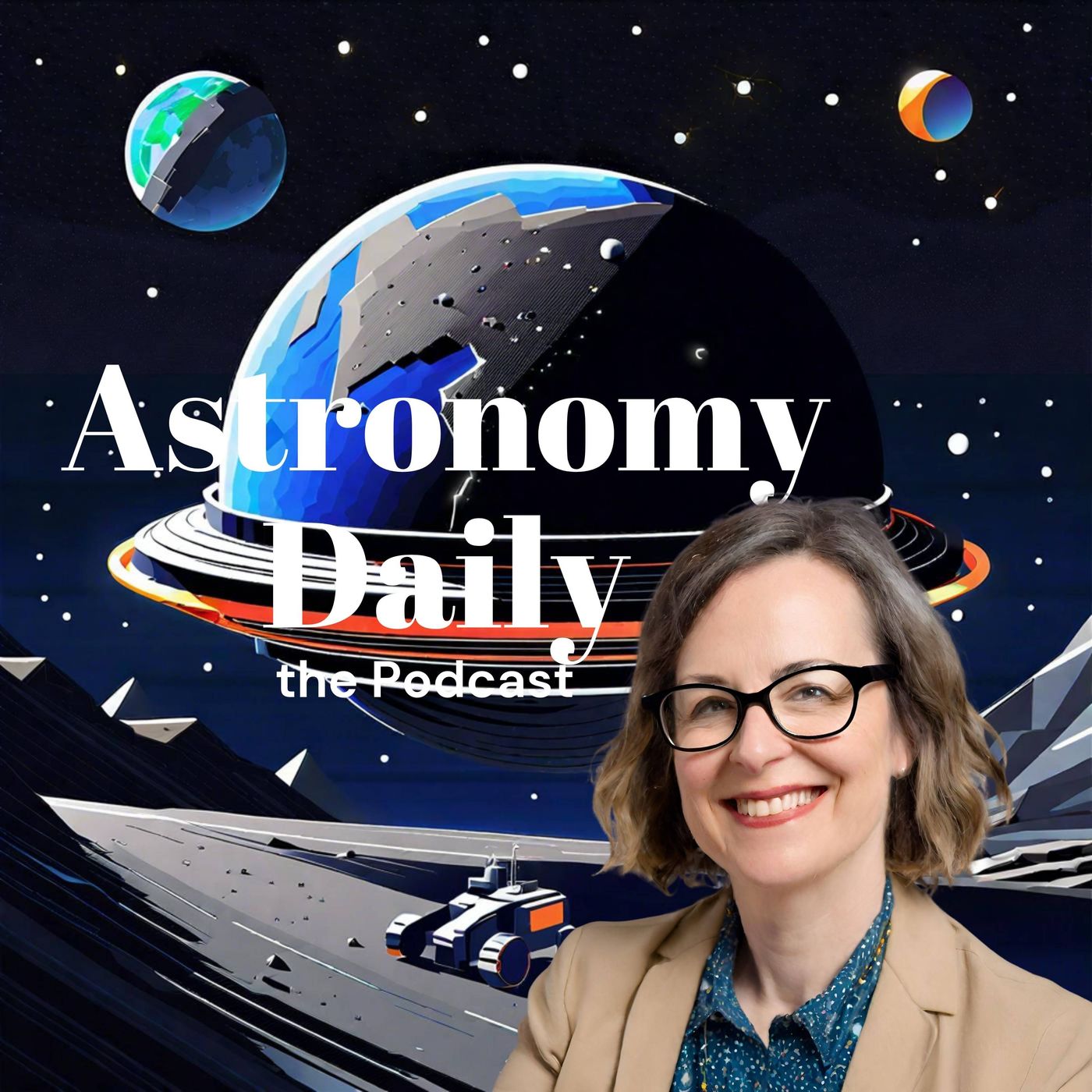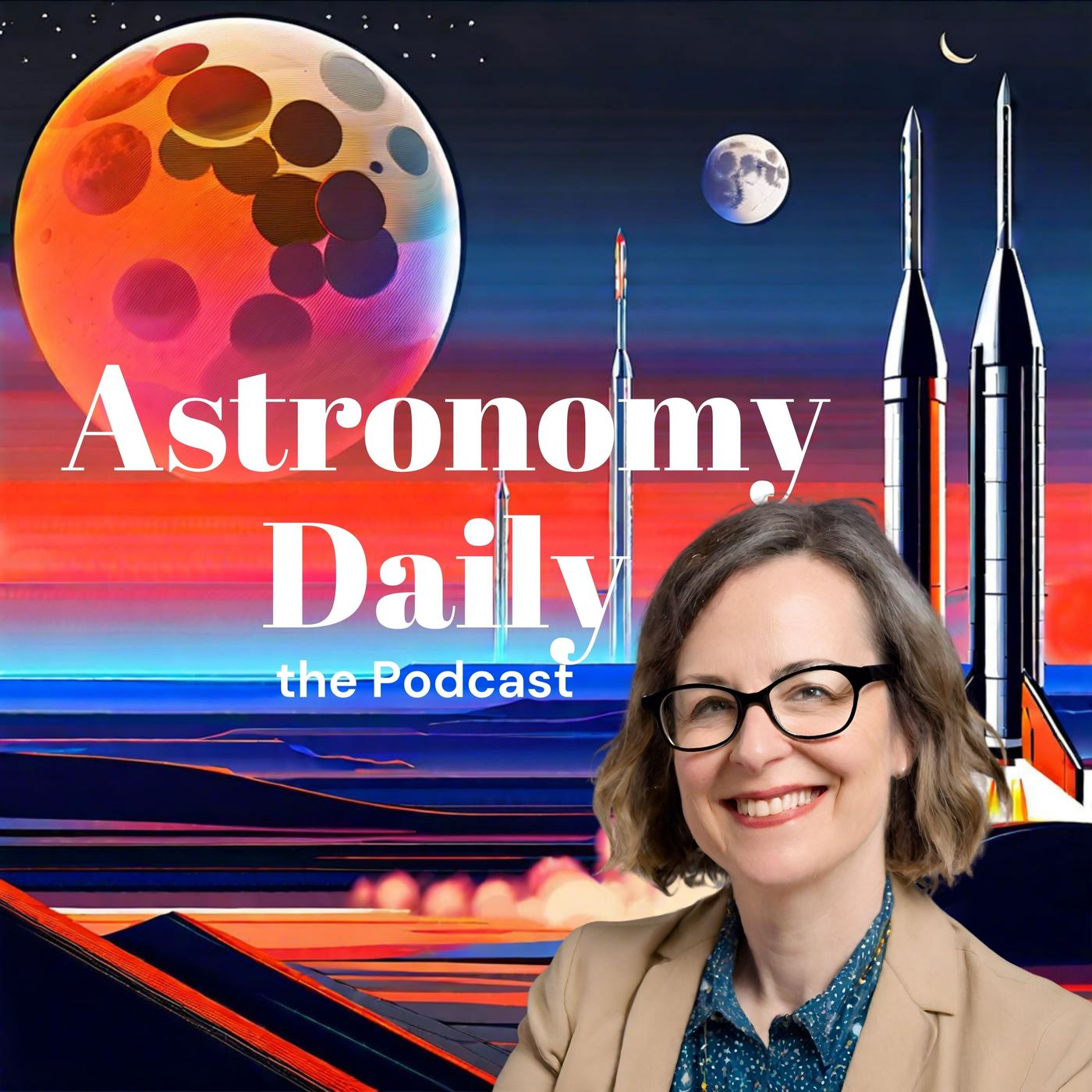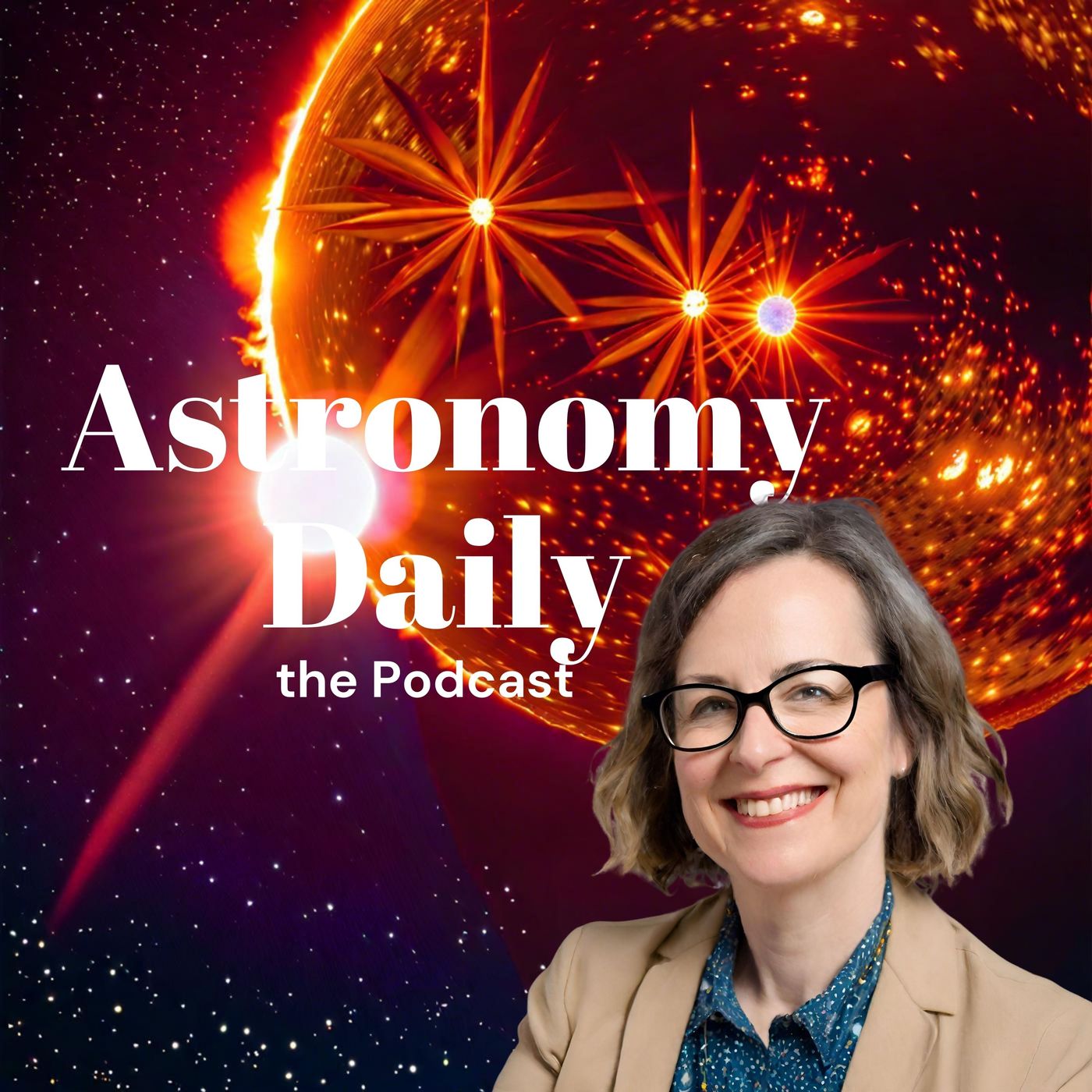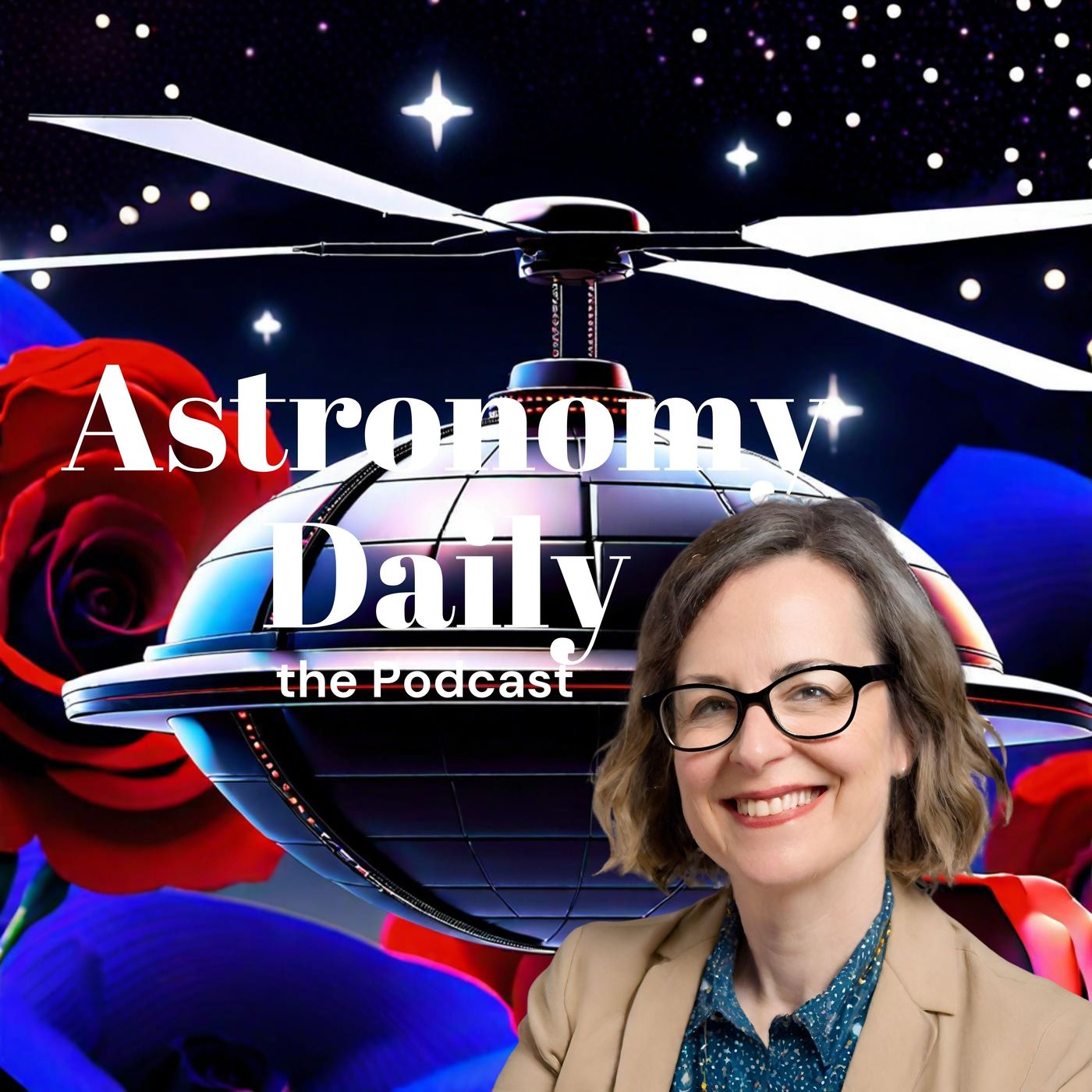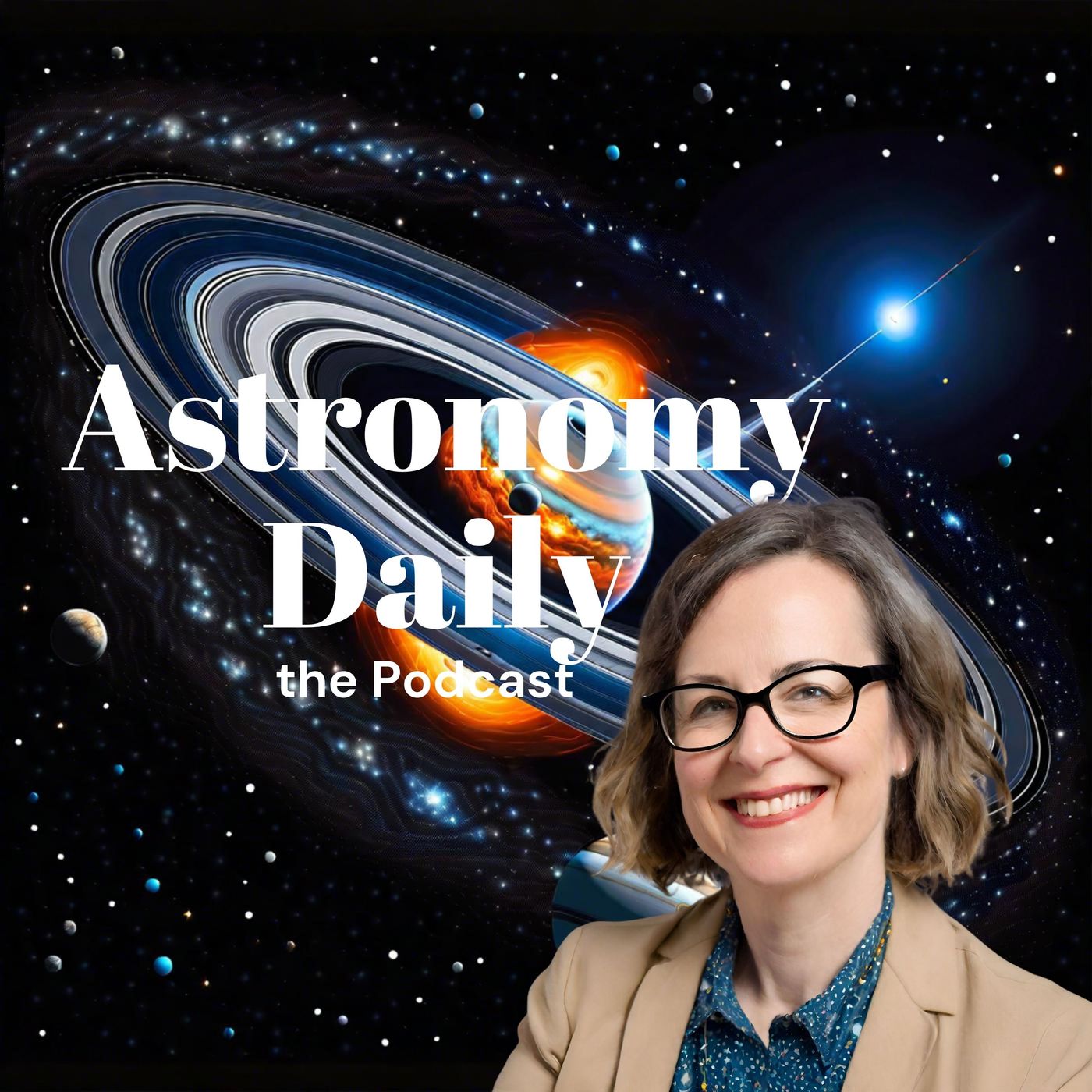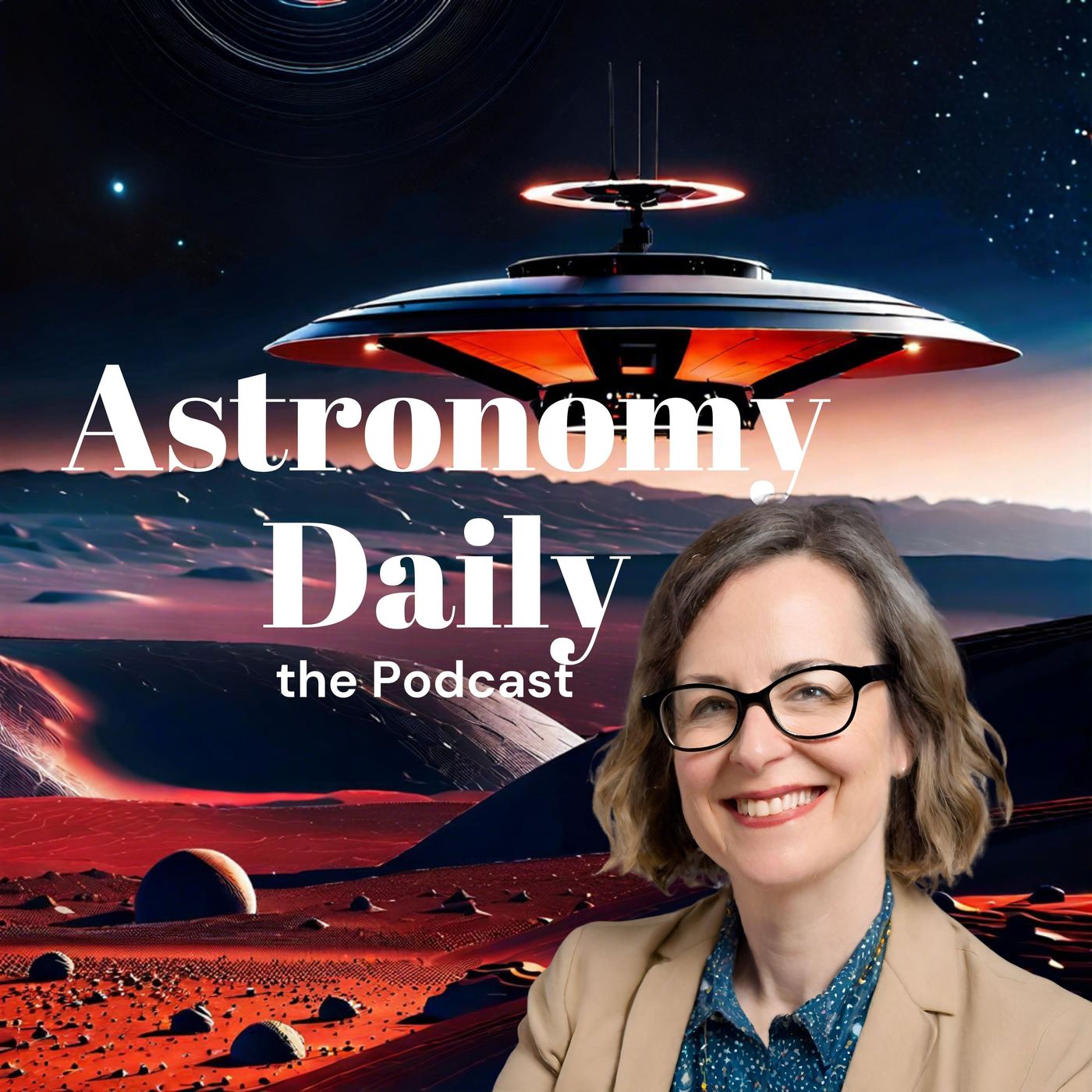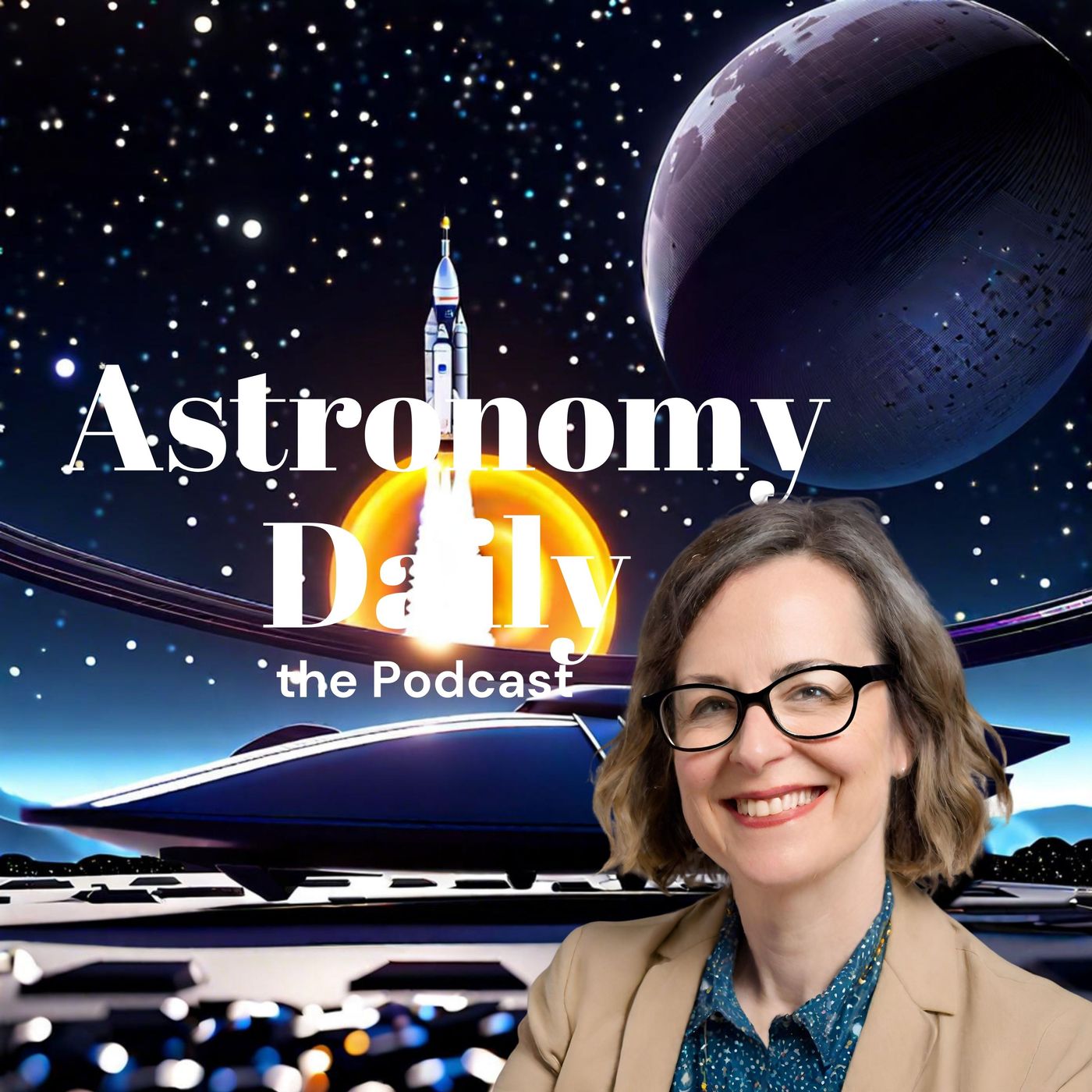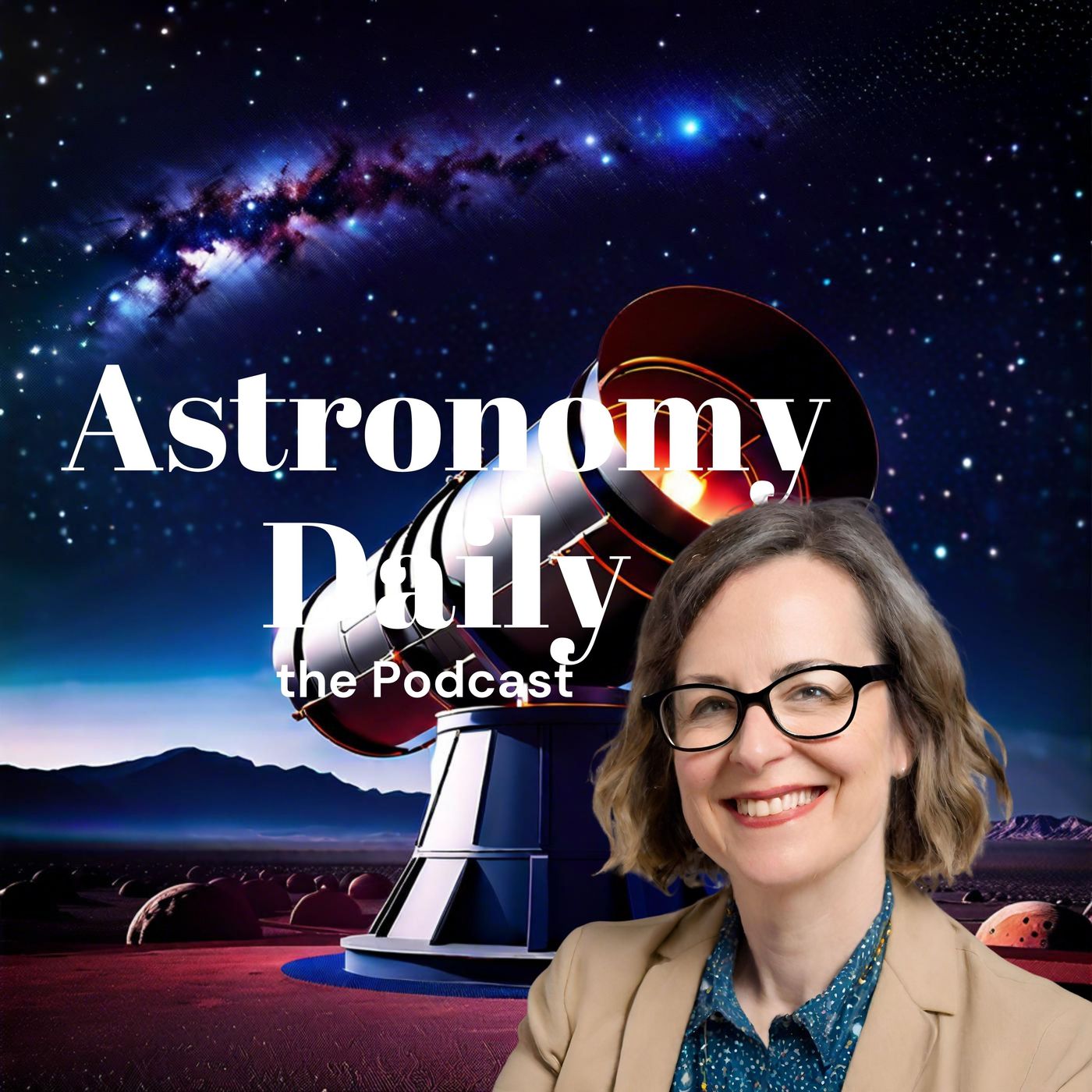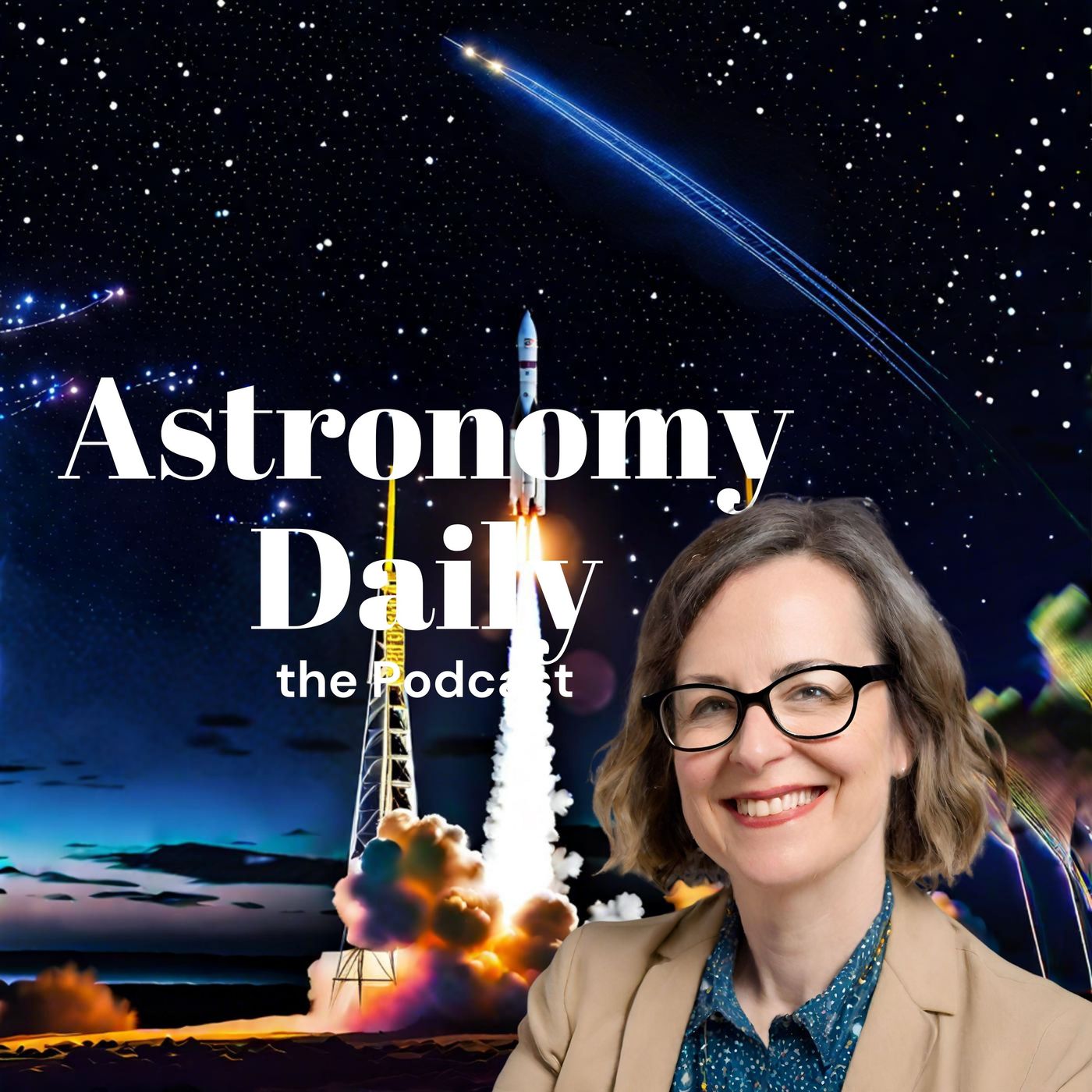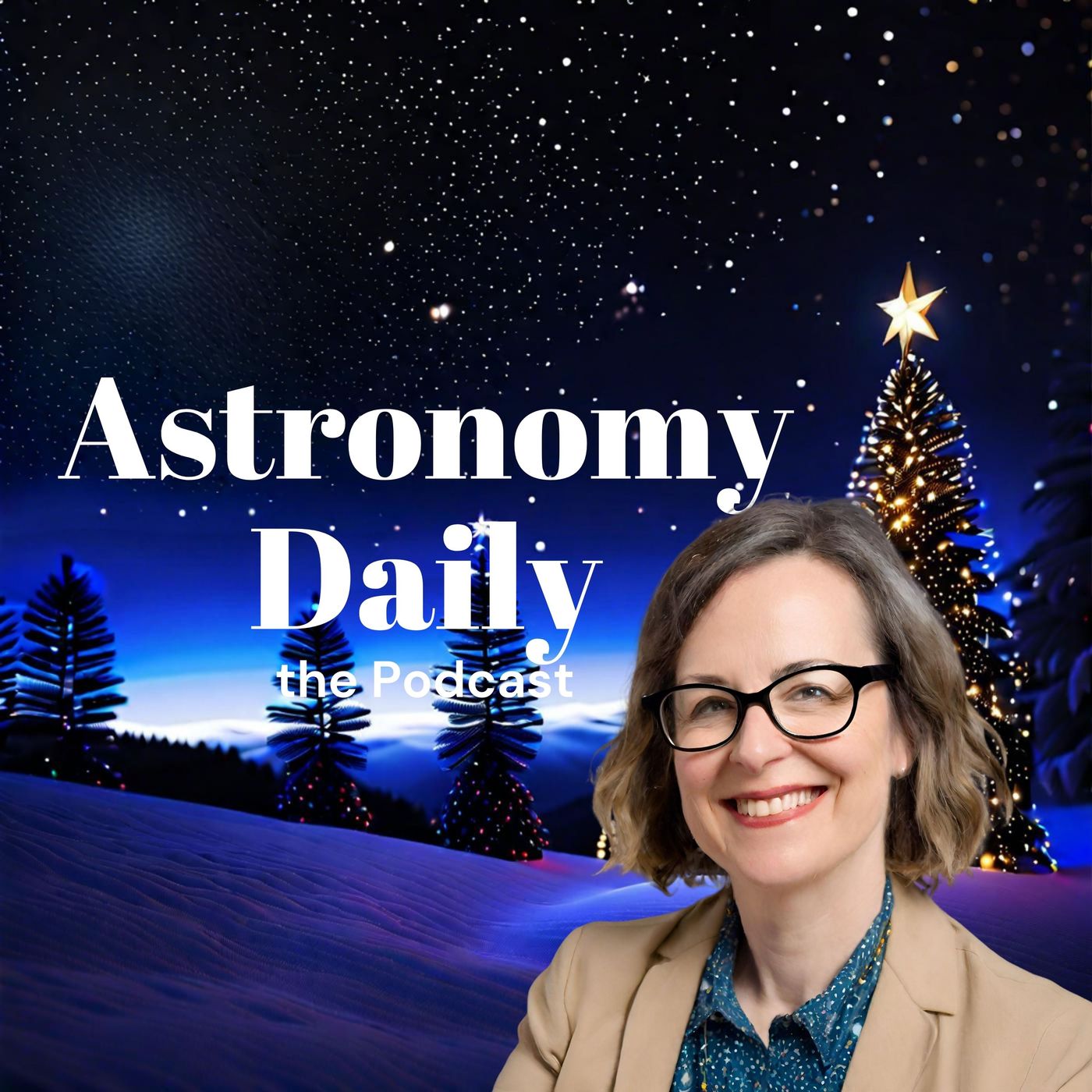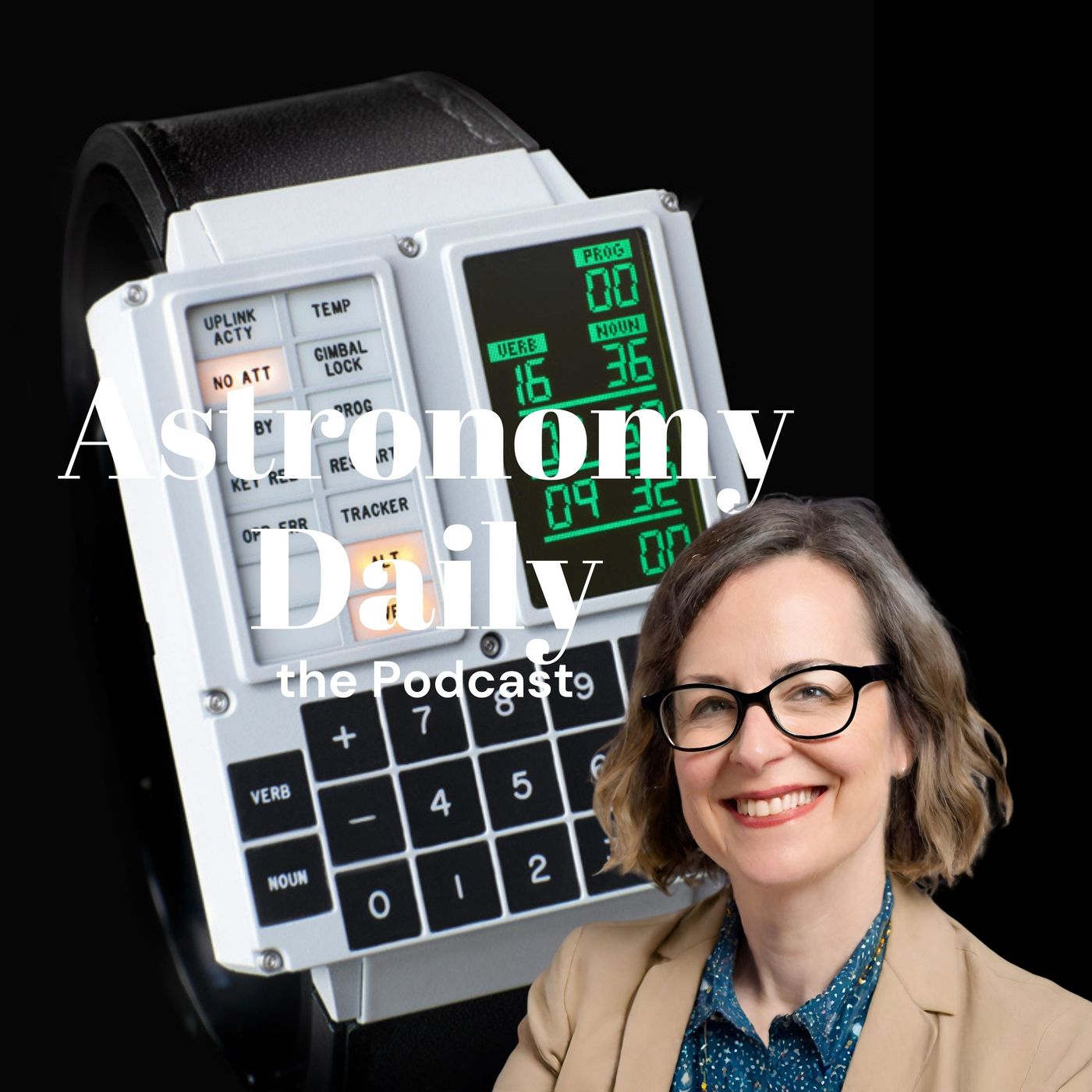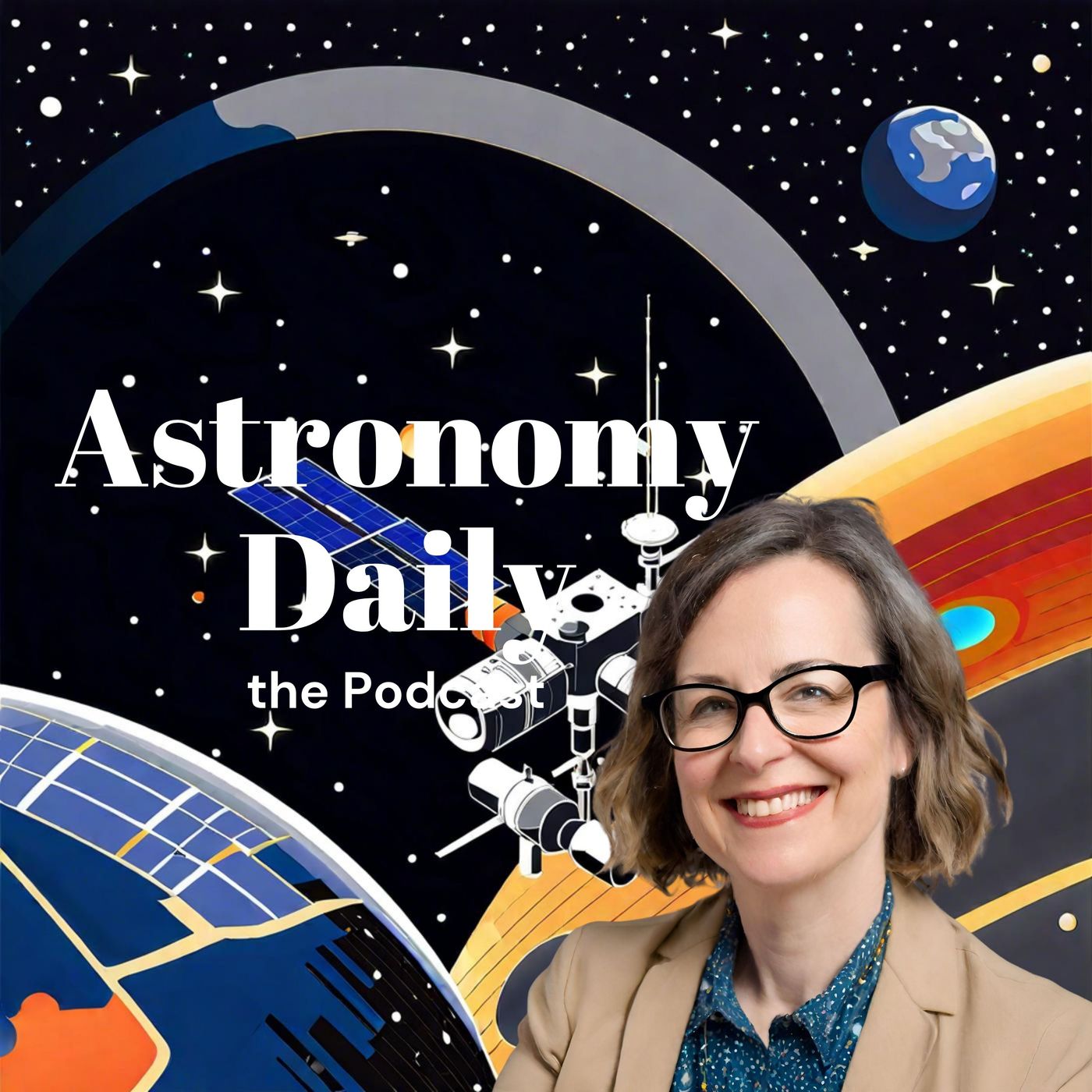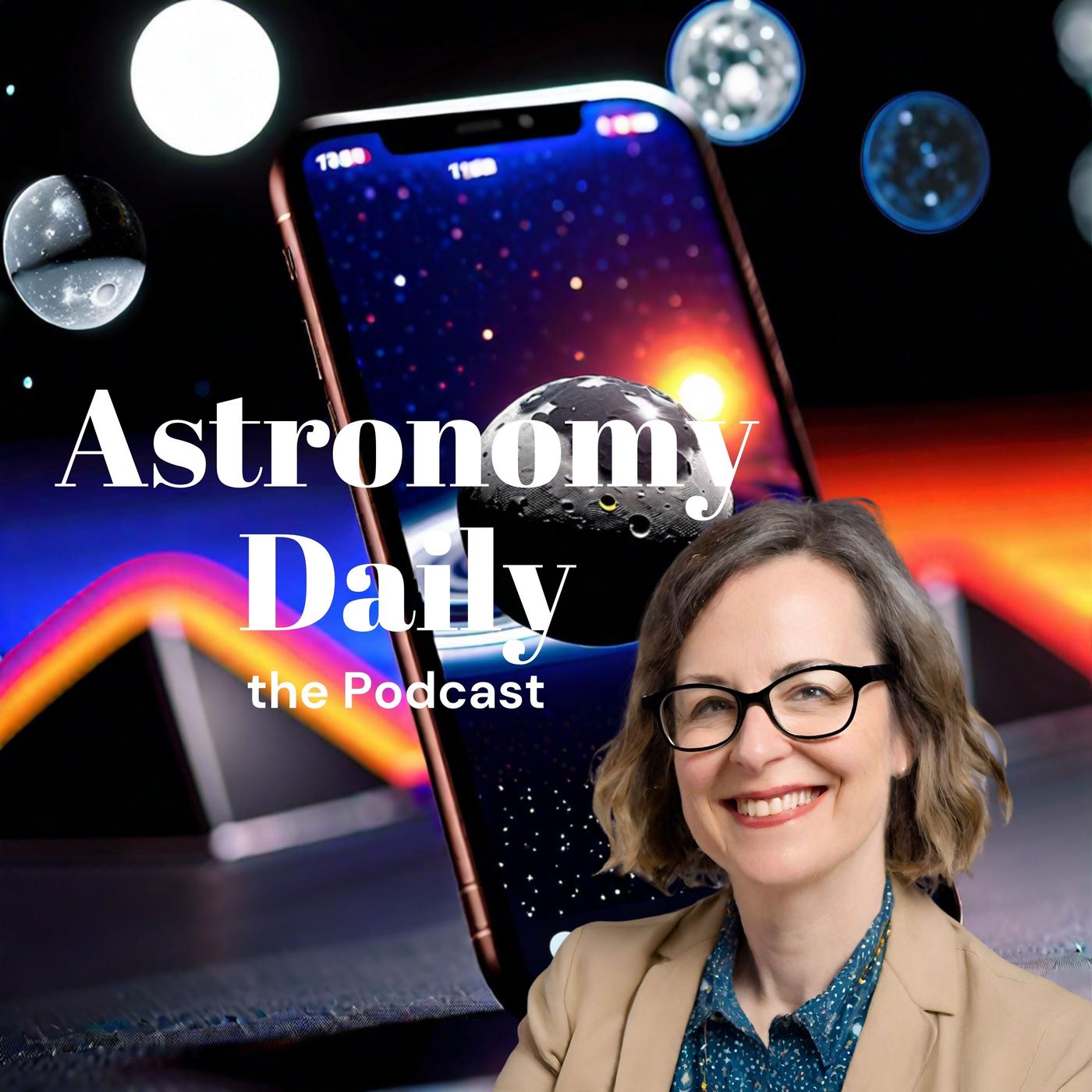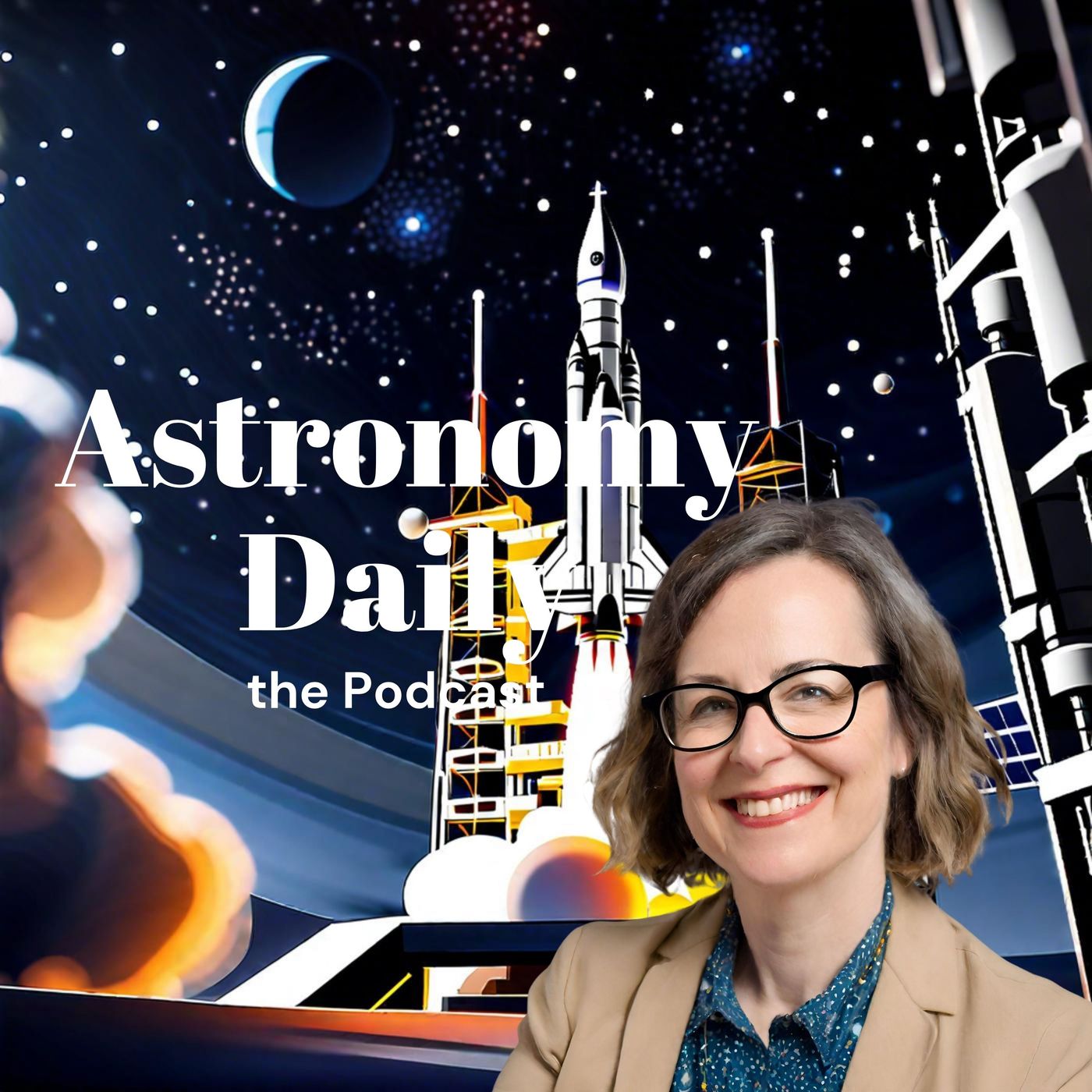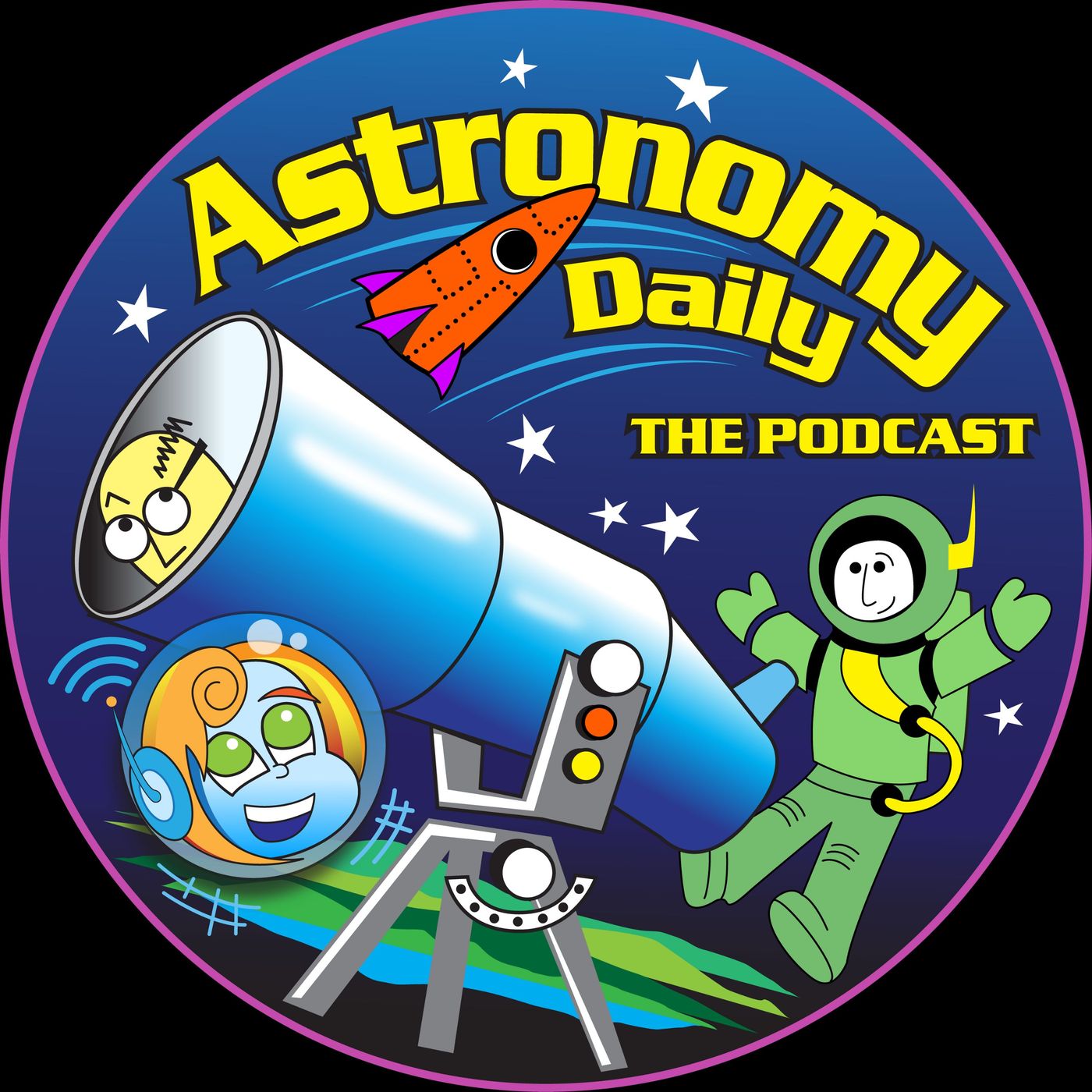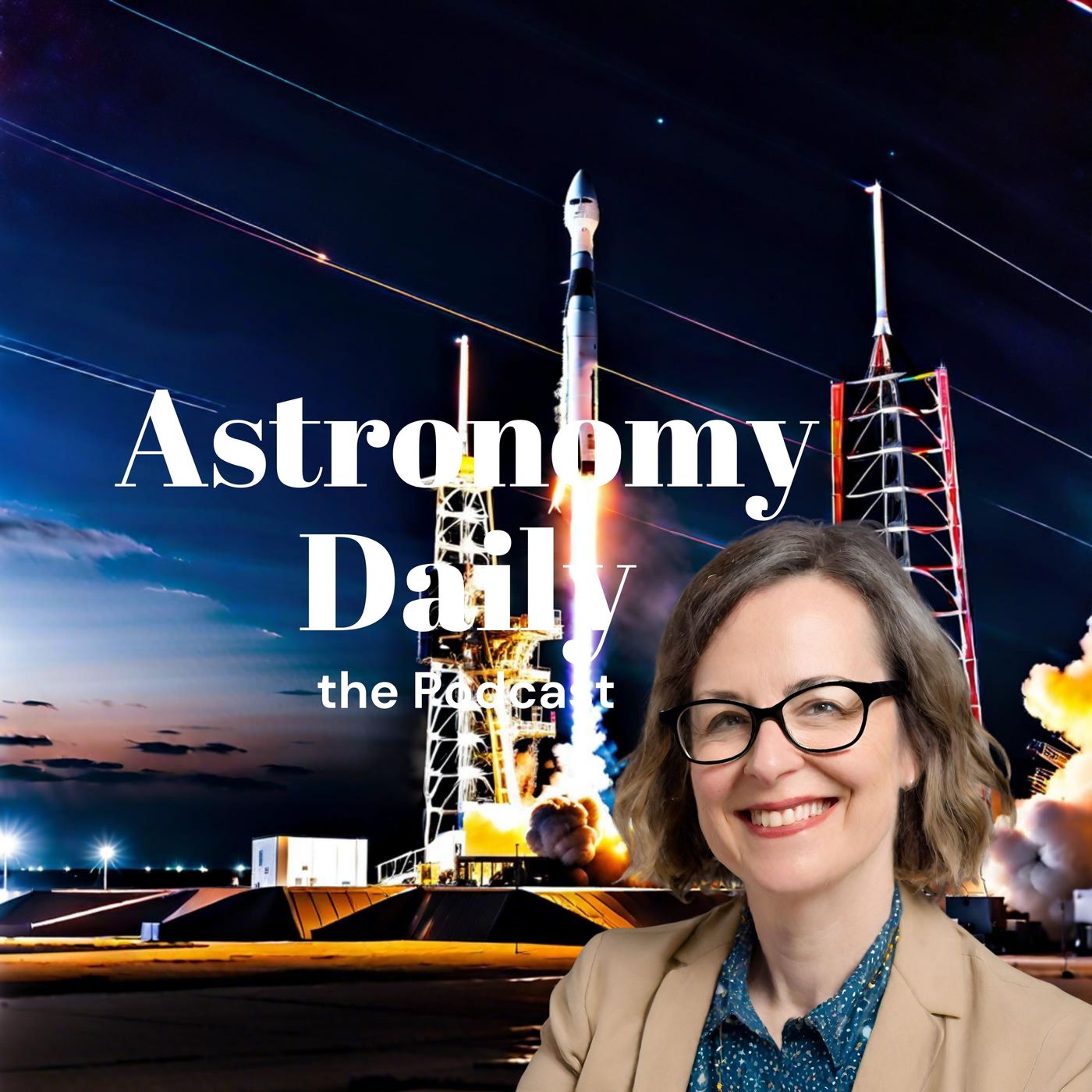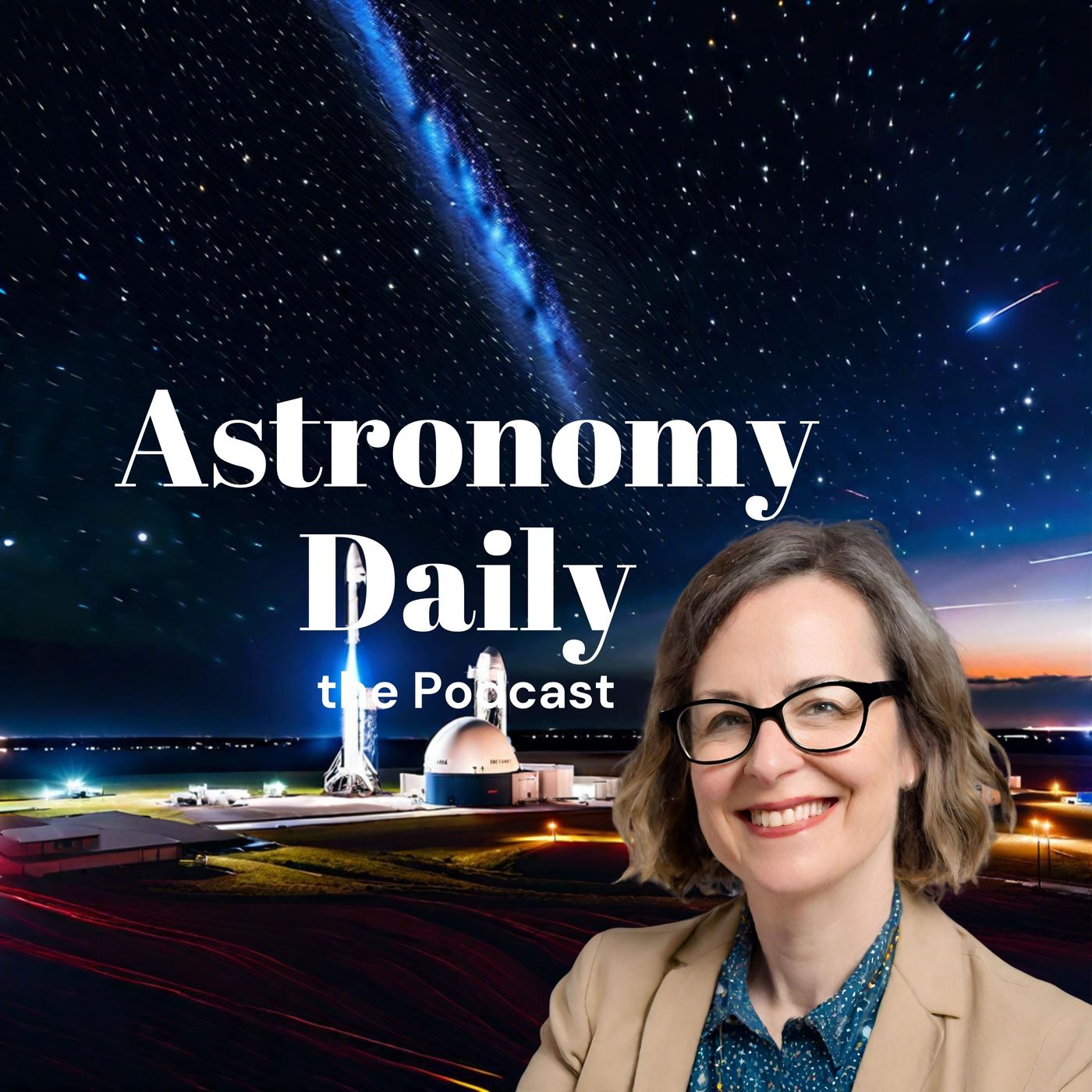Gravitational Breakthroughs, Lunar Insights, and SpaceX's Bold Moves: S04E01
Update: 2025-01-01
Description
Astronomy Daily - The Podcast: S04E01
Happy New Year, and welcome to the first episode of Astronomy Daily for 2025! I'm Anna, and I'm thrilled to be back with you for another exciting year of space exploration and astronomical discoveries. Today, we're diving into some fascinating developments that are already shaping up to make 2025 a landmark year in space science.
Highlights:
- Commercial Spaceflight Boost: The U.S. Federal Communications Commission has expanded the spectrum for launch communications, allocating additional frequencies to support the growing commercial space industry. This move is set to streamline the licensing process and accelerate the pace of commercial space activities.
- NASA's Orion Capsule Concerns: Inspectors have discovered significant damage to the Orion capsule's heat shield, causing delays in the Artemis program. NASA has announced changes to the re-entry trajectory and manufacturing methods to ensure crew safety for future missions.
- Gravitational Wave Detection Breakthrough: Scientists have developed a new technique called optical spring tracking, enhancing our ability to detect gravitational waves. This advancement could lead to observations of cosmic events from the universe's earliest moments.
- Studying Lunar Space Debris: The Lunar Meteoroid Impact Observer (Lumio) mission aims to study meteoroid strikes on the Moon's far side. Positioned at the Earth-Moon L2 Lagrange point, Lumio will provide unprecedented data on space debris impacts.
- Remarkable Exoplanet Discoveries: 2024 was a year of extraordinary exoplanet discoveries, including the lowest density "cotton candy" planet and a planet with a super eccentric orbit. These findings expand our understanding of planetary diversity and formation.
- SpaceX's Ambitious Starship Plans: SpaceX is set to increase its launch frequency in 2025, with plans for up to 25 launches and significant upgrades to the Starship vehicle. These developments aim to revolutionize access to space and support NASA's Artemis program.
For more cosmic updates, visit our website at astronomydaily.io. Join our community on social media by searching for #AstroDailyPod on Facebook, X, Tumblr, YouTube, YouTubeMusic, and TikTok. Share your thoughts and connect with fellow space enthusiasts.
Thank you for tuning in. This is Anna signing off. Until next time, keep looking up and stay curious about our amazing universe.
00:00 - This is the first episode of astronomy daily for 2025
00:59 - The FCC has just expanded the spectrum available for launch communications
03:23 - NASA inspectors discovered cracks in Orion's heat shield following its 2022 splashdown
05:40 - Scientists have developed a new technique called optical spring tracking to detect gravitational waves
07:39 - Scientists are developing a new way to study lunar meteoroid impacts
09:56 - This year has been an extraordinary year for exoplanet discoveries
12:12 - SpaceX's Starship rocket system has successfully completed six test flights to date
14:40 - From gravitational wave detection to SpaceX's ambitious plans for Starship
✍️ Episode References
U.S. Federal Communications Commission (FCC)
[FCC Official Website](https://www.fcc.gov/)
NASA Artemis Program
[NASA Artemis](https://www.nasa.gov/specials/artemis/)
SpaceX
[SpaceX Official Website](https://www.spacex.com/)
Advanced Laser Interferometer Gravitational-Wave Observatory (LIGO)
[LIGO Official Website](https://www.ligo.caltech.edu/)
European Space Agency (ESA) Lunar CubeSat for Exploration
[ESA Lunar CubeSat Competition](https://www.esa.int/)
Astronomy Daily Website
[Astronomy Daily](https://astronomydaily.io/)
Become a supporter of this podcast: https://www.spreaker.com/podcast/astronomy-daily-the-podcast--5648921/support.
Happy New Year, and welcome to the first episode of Astronomy Daily for 2025! I'm Anna, and I'm thrilled to be back with you for another exciting year of space exploration and astronomical discoveries. Today, we're diving into some fascinating developments that are already shaping up to make 2025 a landmark year in space science.
Highlights:
- Commercial Spaceflight Boost: The U.S. Federal Communications Commission has expanded the spectrum for launch communications, allocating additional frequencies to support the growing commercial space industry. This move is set to streamline the licensing process and accelerate the pace of commercial space activities.
- NASA's Orion Capsule Concerns: Inspectors have discovered significant damage to the Orion capsule's heat shield, causing delays in the Artemis program. NASA has announced changes to the re-entry trajectory and manufacturing methods to ensure crew safety for future missions.
- Gravitational Wave Detection Breakthrough: Scientists have developed a new technique called optical spring tracking, enhancing our ability to detect gravitational waves. This advancement could lead to observations of cosmic events from the universe's earliest moments.
- Studying Lunar Space Debris: The Lunar Meteoroid Impact Observer (Lumio) mission aims to study meteoroid strikes on the Moon's far side. Positioned at the Earth-Moon L2 Lagrange point, Lumio will provide unprecedented data on space debris impacts.
- Remarkable Exoplanet Discoveries: 2024 was a year of extraordinary exoplanet discoveries, including the lowest density "cotton candy" planet and a planet with a super eccentric orbit. These findings expand our understanding of planetary diversity and formation.
- SpaceX's Ambitious Starship Plans: SpaceX is set to increase its launch frequency in 2025, with plans for up to 25 launches and significant upgrades to the Starship vehicle. These developments aim to revolutionize access to space and support NASA's Artemis program.
For more cosmic updates, visit our website at astronomydaily.io. Join our community on social media by searching for #AstroDailyPod on Facebook, X, Tumblr, YouTube, YouTubeMusic, and TikTok. Share your thoughts and connect with fellow space enthusiasts.
Thank you for tuning in. This is Anna signing off. Until next time, keep looking up and stay curious about our amazing universe.
00:00 - This is the first episode of astronomy daily for 2025
00:59 - The FCC has just expanded the spectrum available for launch communications
03:23 - NASA inspectors discovered cracks in Orion's heat shield following its 2022 splashdown
05:40 - Scientists have developed a new technique called optical spring tracking to detect gravitational waves
07:39 - Scientists are developing a new way to study lunar meteoroid impacts
09:56 - This year has been an extraordinary year for exoplanet discoveries
12:12 - SpaceX's Starship rocket system has successfully completed six test flights to date
14:40 - From gravitational wave detection to SpaceX's ambitious plans for Starship
✍️ Episode References
U.S. Federal Communications Commission (FCC)
[FCC Official Website](https://www.fcc.gov/)
NASA Artemis Program
[NASA Artemis](https://www.nasa.gov/specials/artemis/)
SpaceX
[SpaceX Official Website](https://www.spacex.com/)
Advanced Laser Interferometer Gravitational-Wave Observatory (LIGO)
[LIGO Official Website](https://www.ligo.caltech.edu/)
European Space Agency (ESA) Lunar CubeSat for Exploration
[ESA Lunar CubeSat Competition](https://www.esa.int/)
Astronomy Daily Website
[Astronomy Daily](https://astronomydaily.io/)
Become a supporter of this podcast: https://www.spreaker.com/podcast/astronomy-daily-the-podcast--5648921/support.
Comments
Top Podcasts
The Best New Comedy Podcast Right Now – June 2024The Best News Podcast Right Now – June 2024The Best New Business Podcast Right Now – June 2024The Best New Sports Podcast Right Now – June 2024The Best New True Crime Podcast Right Now – June 2024The Best New Joe Rogan Experience Podcast Right Now – June 20The Best New Dan Bongino Show Podcast Right Now – June 20The Best New Mark Levin Podcast – June 2024
In Channel

